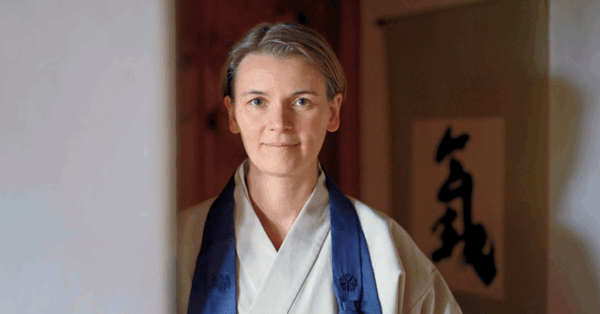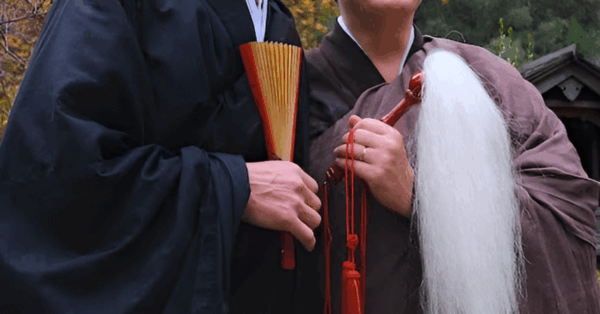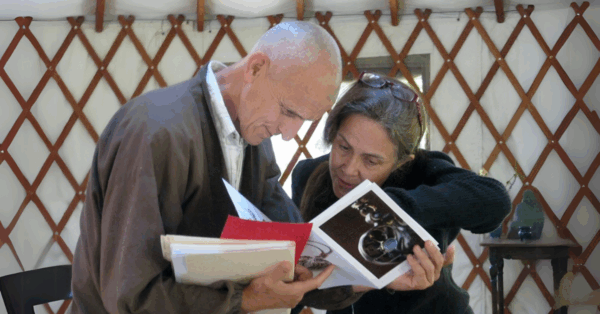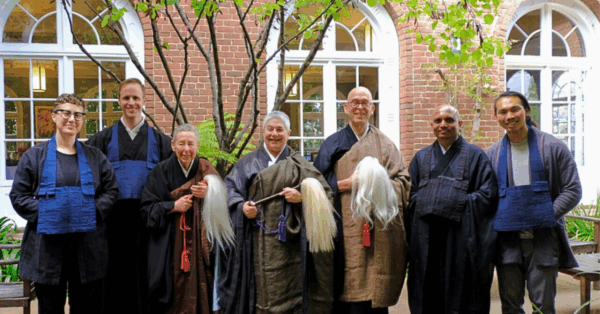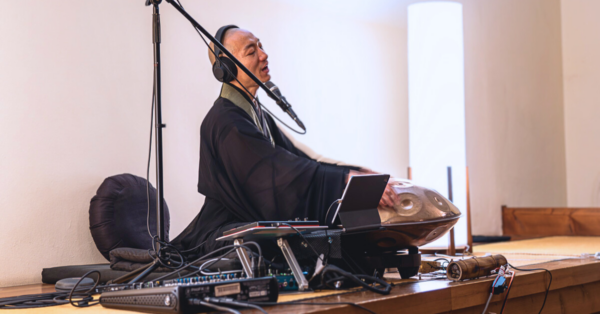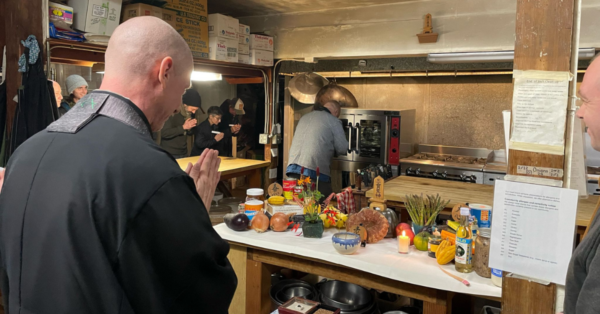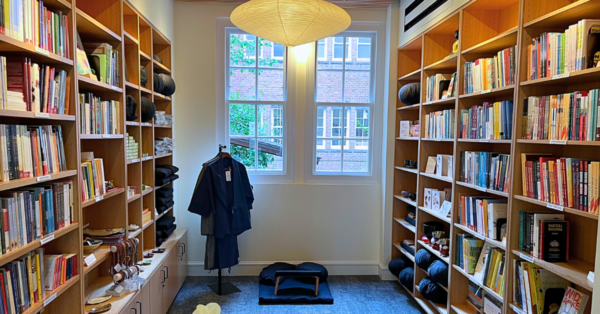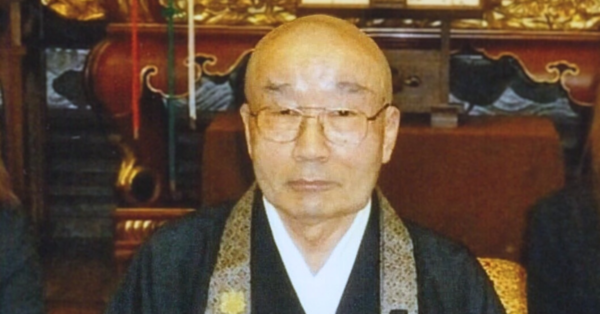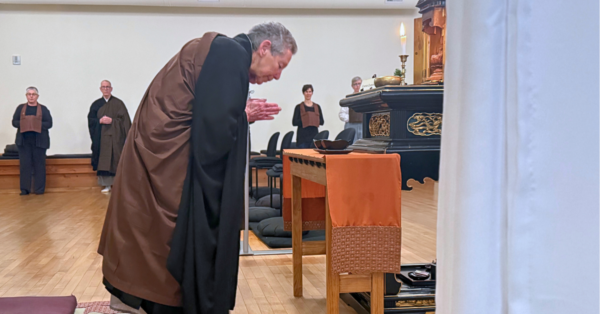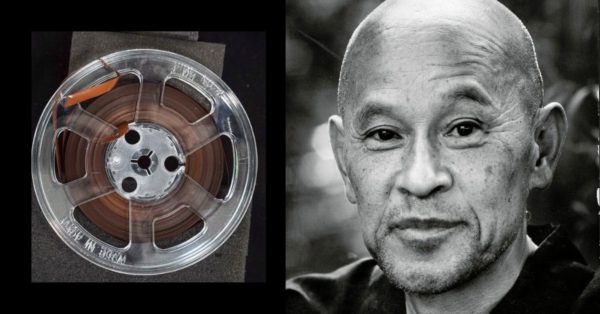
To listen to this talk, “Pure Rules,” see the Suzuki Roshi Audio Archive where it is listed on the right side.
This talk was given by Suzuki Roshi at Sokoji in San Francisco on Wednesday, July 28, 1965.
Description:
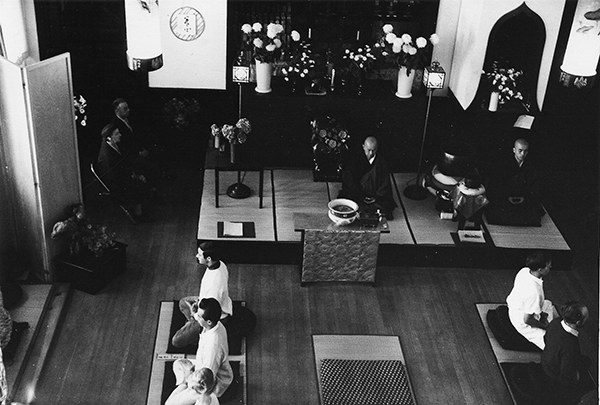
Shunryu Suzuki Roshi in Sokoji, San Francisco, 1965: Photo by Robert S. Boni
The value of these sets of recordings during sesshins in the summer of 1965 at Sokoji is that not only were the formal Dharma talks preserved, but also the chanting services, and various instructions that Suzuki Roshi gave in the zendo during the day. Transcripts of these were not thought to be worth publishing or distributing in the same way as the talks, so the content has been lost over the years. The audio quality of these recordings is far less good; in some cases Suzuki Roshi was walking around the zendo and his voice is competing with the traffic noise on Bush Street. The tape operator would have also had to act quickly when Suzuki Roshi started speaking, so in each of the different segments on this tape, the opening words are lost. On a sesshin tape from 1966, the operator (Richard Baker) notes that several instructions were not recorded because “It was too difficult to set up and get it done, and it interrupts what he says. But I’ve written it down.”
In this 9:00 am instruction, Suzuki Roshi is explaining the arrangement of the zendo, how each student should manage the space at their own seat, and also the significance of the corner seats. As he explains, according to the traditional zendo layout, as at Eiheiji (the Soto Zen main temple founded by Eihei Dogen, where Suzuki Roshi trained), senior teachers would be sitting in these corners. There are rules and guidelines on how to move, to sit, and to bow; while these can just be used as a tool for continual mindfulness, they have a deeper purpose as well. They are manifestations of the absolute, beyond our ideas of whether things are “good” or “bad” and, as such, they are an important component in our practice. The container of practice in the zendo, with its pure rules, is how we can approach the absolute.
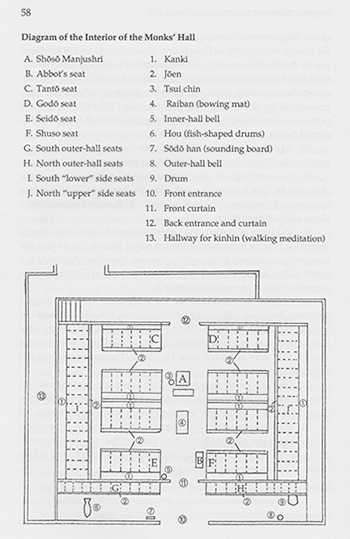
Eiheiji Sodo map from Dogen’s Pure Standards for the Zen Community, p. 58
“This way may be — is very difficult to apply in your everyday life, but if you have this attitude in your inmost heart, you can do anything, and you are pure and be free from duality of the world.” (@7:40)
The last few minutes of the instruction appear to have been a continuation of the main part. The recorder had been stopped, and the sound quality is different, so perhaps Suzuki Roshi had sat down again. His theme is continuous, that is, on the establishment of rules in the community. He emphasizes the middle way — “If it is too strict, you will pay. And if it is too loose, it will not work.” (@16:55). Rules may be developed according to circumstances — as they were in the historical Buddha’s time and also, anecdotally, at Tassajara — but because of their absolute and impersonal nature, they are an opportunity for us not to get caught in our personal preferences, and thus to enter whole-heartedly into practice.
- To view all of the talks that have currently been released and to learn more about this project, see the Suzuki Roshi Audio Archive.
- Please donate to the preservation of San Francisco Zen Center’s audio archives.
- Non-monetary support is also welcome. This collection of talks is a living, evolving archive that depends on input from people like you to unlock the wisdom it contains. Several of the newly discovered talks are in need of transcription, and nearly all can benefit from listeners adding descriptions and keyword tags to improve searchability. To get started, visit the Suzuki Roshi Audio Archive page for many ways to engage.


